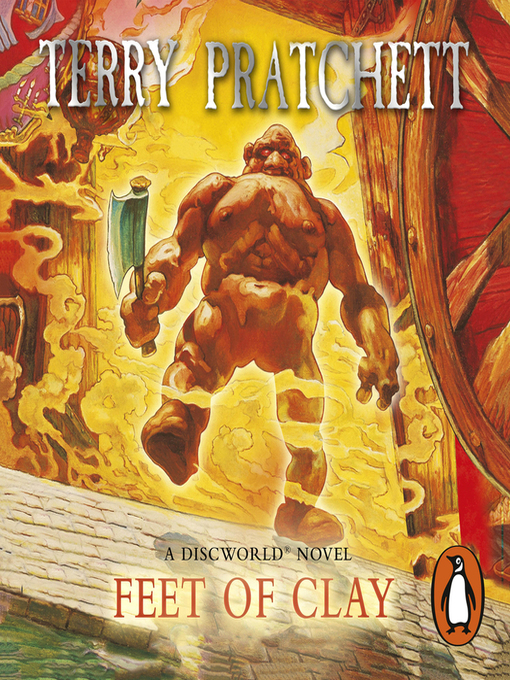
Wednesday
Barack Obama’s uplifting oration at John Lewis’s funeral was still ringing in my ears when I came across a similar celebration of inclusion and diversity in a Terry Pratchett novel. I’m currently working my way through Pratchett’s 60 or so fantasy novels, which stand in stark contrast to Tolkien’s Lord of the Rings. Not only are they humorous (Tolkien, by contrast, is deadly serious), but they don’t have the same kind of species bias. Tolkien divides his world into good species (hobbits, elves, dwarves, Ents and humans) and bad species (goblins, orcs, trolls, and humans) while Pratchett embraces everyone.
Pratchett also doesn’t share Tolkien’s class bias. Whereas Tolkien associates the bad species with the industrial working class and the good species with upper-class patricians, the artisanal middle class, and self-employed agricultural workers, Pratchett finds good and bad in all species. Their challenge is getting along with each other, which isn’t easy since troll culture, dwarf culture, golem culture, werewolf culture, zombie culture, vampire culture, goblin culture, wee people culture, and human culture often vary widely. If Tolkien’s fiction is a modernist longing for a rural past, Pratchett’s is a post-modernist embrace of chaotic urban life.
Take the following scene from Feet of Clay, for instance, where Inspector Vimes, head of the Night Watch, has just encountered a racist factory owner who has been exploiting golems. Unlike many of America’s police forces, his first response is to diversify:
“Who’s that man who owns that place?”
“That’s Mr. Catterail, sir. You know, he’s always writing you letters about there being too many what he calls ‘less races’ in the Watch. You know…trolls and dwarfs…” The sergeant had to trot to keep up with Vimes.
“Get some zombies,” he said.
“You’ve always been dead against zombies, excuse my pun,” said Sergeant Colon.
“Any want to join, are there?”
“Oh, yessir. Couple of good lads, sir, and but for the gray skin hangin’ off ‘em you’d swear they hadn’t been buried five minutes.”
“Swear them in tomorrow.”
“Right, sir. Good idea. And of course it’s a great saving not having to include them in the pension plan.”
Feet of Clay also features a scenario that gets at the heart of our current political dilemma, which is that only the Democrats seriously care about responsible governance. In the novel, the ruthless but effective patrician Vetinari appears to be dying, and the various guilds are imagining a successor. Like the GOP, however, they are flummoxed by the prospect of having to “negotiate and juggle with all the conflicting interests.” It’s much easier to complain about those who are running things.
The passage applies as well to how the GOP has come to take for granted the Pax Americana (if that’s what the past 75 years can be called) while feeling free to snipe at the various entities that comprise it. If the United States abdicates its leadership role, then China will only be too happy to take over. Think of the Patrician as a responsible American president in the following passage, which also contains a strong case against limiting immigration:
Who’d be Patrician now? Once there’d have been a huge multi-sided struggle, but now!…
You got the power, but you got the problems, too. Things had changed. These days, you had to negotiate and juggle with all the conflicting interests. No one sane had tried to kill Vetinari for years, because the world with him in it was just preferable to one without him…[Vetinari had] taken all the gangs and squabbling groups and made them see that a small slice of the cake on a regular basis was better by far than a bigger slide with a dagger in it. He’d made them see that it was better to take a small slice but enlarge the cake.
Ankh-Morpork, alone of all the cities of the plains, had opened its gates to dwarfs and trolls (alloys are stronger, as Vetinari had said). It had worked. They made things. Often they made trouble, but mostly they made wealth. As a result, although Ankh-Morpork still had many enemies, those enemies had to finance their armies with borrowed money. Most of it was borrowed from Ankh-Morpork, at punitive interest. There hadn’t been any really big wars for years. Ankh-Morpork had made them unprofitable.
Thousands of years ago the old empire had enforced the Pax Morporkia, which had said to the world: “Do not fight, or we will kill you.” The pax had arisen again, but this time it said: “If you fight we’ll call in your mortgages. And incidentally, that’s my pike you’re pointing at me. I paid for that shield you’re holding. And take my helmet off when you speak to me, you horrible little debtor.”
And now the whole machine, which whirred away so quietly that people had forgotten it was a machine at all and thought that it was just the way the world worked, had given a lurch.
The guild leaders examined their thoughts and decided that what they did not want was power. What they wanted was that tomorrow should be pretty much like today.
A lot of Americans would like America to be like what it was four years ago.

